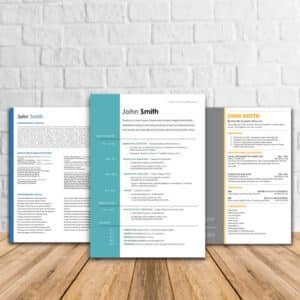Talking about pay can feel like stepping onto thin ice. Even close friends hesitate to ask, “So, what do you make?” At Leveraged CV we believe good career decisions start with clear, accurate information—especially around earnings. To help you benchmark your earning power, we’ve taken a fresh look at the average household income UK figures for 2025 and beyond, and what they really mean for everyday professionals.
The Numbers Behind UK Household Income
Before we dive into personal comparisons, let’s establish a baseline. According to the most recent release from the Office for National Statistics (ONS) covering June–August 2025:
- Average weekly pay (before tax): £693
- Average weekly pay (after tax): £648
If you work full-time all 52 weeks, that weekly figure translates to roughly £36,036 gross per year. After tax, your take-home pay sits just under £29,500—about £2,453 a month.
Because these ONS figures look at individuals, it helps to double them when considering the average family income UK. Two partners earning the national mean could collectively bring in around £72,000 before tax.
Quick Glossary
• Average household income United Kingdom: The mean income across all households.
• Median household income UK: The middle point where half of households earn more and half earn less.
• Average family income UK: Broadly synonymous with average household income, but often used when referring to couples with children.
Why the Median Matters
Averages can be nudged upward by a small number of very high earners. The median household income UK offers another lens by showing what a “typical” household actually pockets. Recent ONS data places that median disposable figure at £32,300—lower than the mean, but often a more realistic checkpoint for self-evaluation
Is Your Salary “Comfortable”?
Whether £50,000 or £70,000 feels comfortable will hinge on:
- Location. London and the South-East command higher living costs than, say, Leeds or Plymouth.
- Household size. Raise two kids, and your grocery and childcare bills reshape the budget.
- Lifestyle goals. A yearly skiing trip or owning two cars adds financial stretch targets.
The Minimum Income Calculator suggests a couple with no children needs about £39,444 combined to maintain a modest yet decent living standard. For a single adult, a figure near £24,900 can cover essentials. Add a child, and that climbs to £47,500. Use these as guideposts, not hard rules—every household is unique.
Average Salaries Across Popular UK Roles (2025)
Curious where your profession sits relative to the average family income UK? Below are estimated annual earnings for some of the UK’s most common full-time jobs, drawn from Nomis and industry salary surveys:
- Financial Managers / Directors: £97,700
- IT Business Analysts & Systems Designers: £77,800
- Production Managers / Manufacturing Directors: £69,100
- Business Development Account Managers: £42,100
- Secondary School Teachers: £33,200
- Nursing Professionals: £34,100
- Large Goods Vehicle (LGV) Drivers: £30,400
- Warehouse Operatives: £20,900
- Customer Service Assistants: £19,300
- Sales Assistants: £18,700
These bands illustrate how pay scales can swing from below the average UK household income to well above it. Company size, sector, and region further tweak the numbers—so treat them as directional rather than definitive.
Bridging the Gap Between Data and Real Life
Numbers are only half the story. To truly understand where you stand:
- Calculate Your Net Pay. Salary calculators help you see take-home amounts after tax, NI, and any pension contributions.
- Adjust for Overtime. If your role brings frequent overtime or shift allowances, fold that into your annual estimate.
- Compare Locally. A £40k salary stretches further in York than in London. Check city-specific cost-of-living indexes.
- Revisit Regularly. Inflation and energy costs shift the goalposts every year. Re-benchmarking keeps expectations realistic.
Leveraged CV’s Take: Your Worth Beyond the Payslip
At Leveraged CV we champion transparency—not comparison contests. Understanding the average household income United Kingdom gives you context, but your individual worth reflects more than a headline statistic. Skills, growth potential, and cultural fit all influence compensation packages.
If the figures above spark salary envy—or anxiety—remember that pay conversations start with a great CV. A well-crafted document highlights achievements, quantifies impact, and positions you for higher offers.
Need proof? Many of our clients have secured 10–20% jumps after refining their CVs with us. Whether you’re a seasoned Financial Manager or a newly qualified Teacher, we tailor your story so recruiters see value quickly.
Practical Steps to Boost Your Earnings Potential
- Audit Your Current CV. Is it up to date? Does it showcase measurable wins aligned with industry benchmarks?
- Research Pay Scales. Use salary surveys and job boards to align your expectations with market reality.
- Upskill Strategically. Certifications in digital skills, project management, or data analytics often command immediate pay bumps.
- Network Widely. Many high-pay roles are filled through referrals. Join professional groups and attend local events.
- Negotiate Confidently. Come armed with data on both the average and median household income UK, plus evidence of your achievements.
Final Word
Talking about money doesn’t have to be awkward. The more we understand how our earnings compare with the average family income UK, the better equipped we are to set realistic goals and negotiate fair pay.
Ready to close the gap between where you are and where you want to be? Reach out to Leveraged CV for a personalised CV review. Let’s make sure your next payslip reflects your true value.
Figures accurate as of the ONS and Nomis releases dated August 2024. Always verify the latest data when planning career moves.



